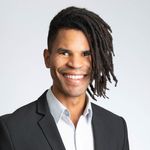Using Policy Research to Achieve Educational Equity

Using Policy Research to Achieve Educational Equity
A Q&A with William Delgado about the role economics and policy analysis can play in helping all kids succeed in school

Before getting his PhD, William Delgado worked as an economic consultant to the Inter-American Bank, the Colombian Health Department, and other organizations. Today, he’s a research assistant professor at BU Wheelock and an affiliated faculty member with the Wheelock Educational Policy Center who uses data-driven strategies and tools from economics and policy analysis to find answers to difficult questions about how parents and schools can best prepare children to succeed.
Although Delgado is a recent addition to the BU Wheelock faculty–he started in fall 2022–he isn’t new to the college. Before becoming a full-time faculty member, Delgado joined BU Wheelock as a senior postdoctoral fellow. In this Q&A, we asked him about his research in educational policy and economics, including teacher quality, parental investment in early childhood education, and racial and socioeconomic achievement gaps.
BU Wheelock: Public policy research covers a wide array of topics, including education, healthcare, benefits, immigration, and government budgets. What led you to study educational policy specifically?
William Delgado: I’m from Colombia, and I identify as Afro-Colombian. My hometown is more than 90% Black, so people look like me. I noticed that there’s so much poverty, so I always had the questions, “Why is my hometown so poor?” “Why do people who look like me tend to live in poverty?”
With my background, seeing so much poverty among people of color, I saw education as one way to get out of poverty. Education is a way toward social mobility. That’s one of the main reasons I focus on education—I try to impact education to help individuals to reach their full potential.
BU Wheelock: You’ve studied public policy in two different countries. What differences have you seen between US policy and Colombian policy?
Delgado: There are many differences between the US and Colombia, such as the way the education system is structured. In the US, it’s more decentralized. You have school districts, states, and the federal government making decisions around schools. In Colombia, it’s more centralized. But there are also similarities, especially around racial and income inequities and disparities, and access to high-quality education.
BU Wheelock: How does your background in economics inform your research in educational policy?
Delgado: Economics provides a framework to think about and answer research questions around what is driving cause and effect. I apply economic tools to understand educational issues—how individuals think about problems, how they make decisions, how they balance the costs and benefits of these choices. I also use methods from economics to evaluate policies and programs.
BU Wheelock: One focus of your research is on teacher quality. What have you learned?
Delgado: In my research, I study various measures of teacher quality, including value-added measures, classroom observations, and student surveys, to provide insight into improving the efficiency and equity of school systems. I have found there’s a lot of heterogeneity in how teachers affect students from different backgrounds (e.g., Black and non-Black students). Some teachers are equally effective with all groups, some are more effective with some groups than others, and other teachers are not very effective with any groups.
I’ve proposed a novel measure of teacher quality–called teacher comparative advantage–that tells us which student subgroup the teacher is more effective with. One way this tool can be used is to identify teachers who are effective with racial minorities. This tool can also help schools reduce achievement gaps and increase student test scores, thereby making school systems more efficient and equitable.
In another study, my coauthor and I looked at classroom observations and student surveys to understand how classroom characteristics can affect teacher ratings. For example, we found that when a teacher has a higher proportion of higher-achieving students in the classroom, she receives higher ratings from evaluators and students. When the same teacher has a lower proportion of higher-achieving students, she will tend to have lower ratings. This suggests that classroom context matters. Ignoring this when evaluating teachers may cause inefficiencies and fairness problems.
BU Wheelock: What else are you currently studying?
Delgado: My current research has two pillars: teacher quality and early childhood education. My coauthors and I designed and implemented a field experiment to understand and address barriers that parents face when investing time in their children. We know that parental engagement is important for children’s development, but lower-income parents invest less time with their children than their higher-income peers. So we designed different approaches to increase parental engagement and children’s early math skills. One approach sent text messages to parents to overcome present bias, and the other sent text messages designed to promote a growth mindset to overcome the idea that a child’s ability is fixed and cannot be changed. A third approach was to give families a tablet with math apps that children could use and learn. We found that children in the tablet group and the present-bias group did better than children from the other groups.
BU Wheelock: You’ve been at BU Wheelock for a year now, first as a postdoc and now a new faculty member. How has it been so far?
Delgado: It’s been great. I enjoy interacting with my colleagues and students, and I like the BU Wheelock community. I’m glad to be part of this community that is leading the movement to promote equity and positive change for children and families. My time at BU and Boston has been positive, and I look forward to connecting with people at BU Wheelock and beyond.